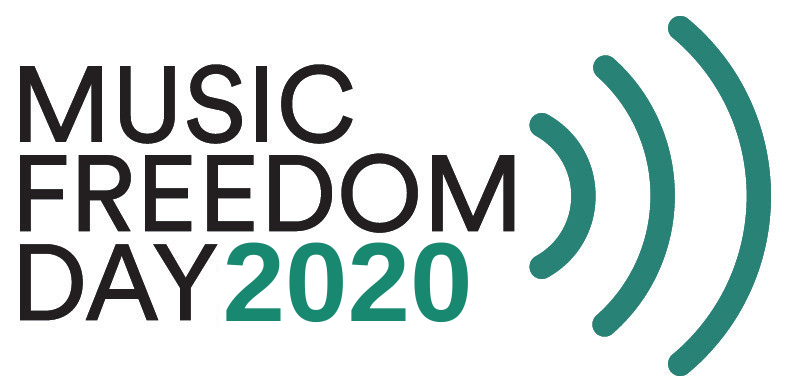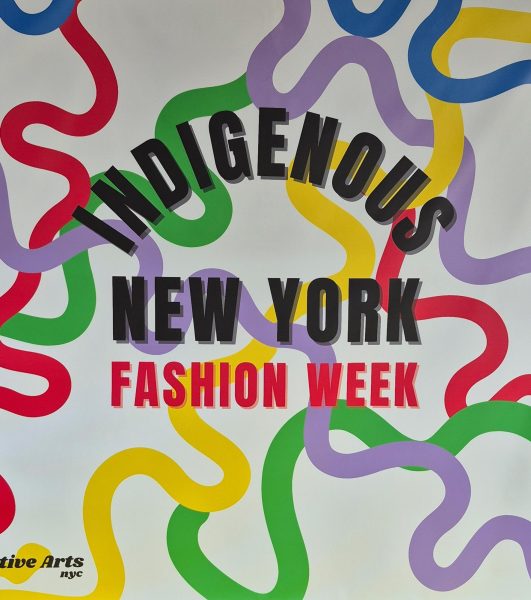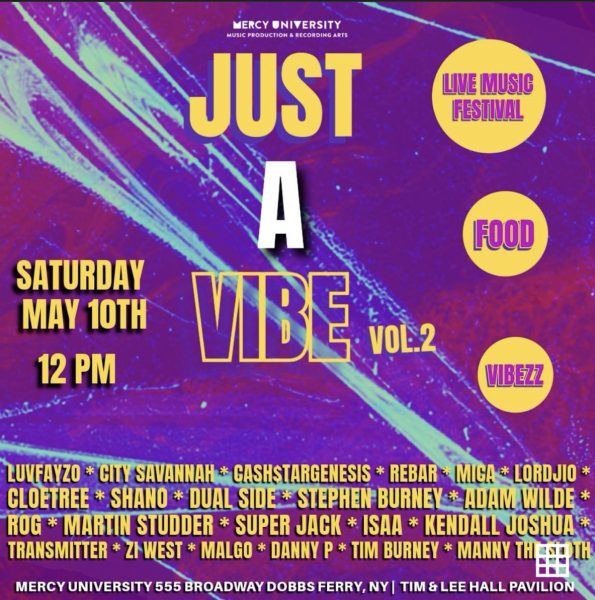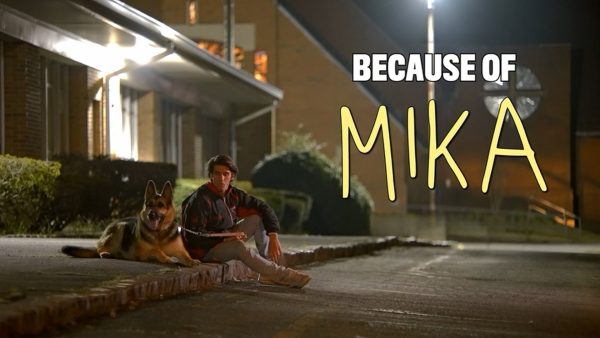Passion or Prison? Mercy College Celebrates Music Freedom Day
The reward for some music artists in certain countries is not always money or fame. Sometimes it can be a prison cell.
In Malaysia, heavy metal bands are accused of Satanism. In China. Tibetan pop bands are blocked from selling their CDs and Christians who practice unapproved forms of Christianity are not allowed to play music in public. As well as in Turkey, where Kurdish musicians face prosecution. Also, the Islamic Republic of Iran, where music laws are extremely strict.
Created in 2007, March 3 has become Music Freedom Day – a day to bring awareness to the censorship and violations against artists who are hindered from expressing themselves through music. It is instituted by Freemuse, an organization dedicated to the freedom of artistic expression. It was celebrated at Mercy College as well as around the world.
Iran specifically has very strict music laws. For example, in Iran it is illegal for female singers to sing in front of mixed gender audiences who are not relatives. If one goes against these laws, there are good chances of being prosecuted, imprisoned and tortured. Since 1979, music on television and radio have been banned in the Islamic Republic. Although artists have always had hope that things would change, it seems as though not much has. But if people have a passion, they never stop working towards it no matter what their circumstances are.
Mehdi Rajabian is one of these people.
This became a reality Rajabian. He had an option of two options. One, follow his country’s laws or two, go against his country’s laws and continue to make music in the way that he wanted no matter his circumstances, Rajabian decided option two. Rajabian gained international attention for his work through the production of Barg Music. He also collaborated with female artists. Before collaborating with female artists, he became a target of the regime. Rajabian was accused of distributing “underground music,” and that many of his lyrics were deemed offensive to the Iranian authorities as well as the country’s religion. Because he decided to make music, Iranian authorities deemed his music as blasphemous and seditious resulting in his imprisonment and torture. Rajaban spent 90 days in solitary confinement blindfolded and unaware of where he was and his surroundings. He was then eventually released on bail.
Again in 2015, Rajabian was arrested and held for six years, after a three minute trial. In protest, he and his brother who was also involved in the same production company and incarcerated, decided to go on a hunger strike which caused him to get very sick. This hunger strike was a big turn for Mehdi because he gained attention from Amnesty International Freemuse, as well as celebrities such as Johnny Depp and many more. His sentence was eventually cut to three years. This was called a suspended sentence which means he could be arrested at any time.
This did not stop Rajabian. He continued to make his music underground. He decided to start gathering artists from the middle East and North Africa. He also collaborated with Sony to make an album called Middle Eastern. This album featured hundreds of artists from all over the Middle East, including countries like Syria and Yemen. The musicians who were featured on his album have all faced similar prosecutions for their music. For example; one song was recorded during an air strike while another was recorded by a refugee fleeing his country on a boat.
Prof. Austin Dacey reached out to Freemuse and was able to get in contact with Mehdi Rajabian. After establishing a relationship with Mehdi and Freemuse, Mehdi shared a number of tracks with Dacey. Dacey partnered up with other professors and students at Mercy College and decided to collaborate on these tracks. The students and teachers who participated were able to create their own sounds and mixes and put them on the track. Though Mehdi was not able to travel or video chat for the Music Freedom event, he was eager to hear about the project. At the event, onlookers were able to hear words from Mehdi through a voice message.
“Music cannot be stopped. Note is our bullet and our instrument is our gun. We are the soldiers,” he said.
At the event, there were four pieces that students and professors had worked on. Each piece represented the person’s style. They were beautifully done in a way that made one feel something that one never felt before, onlookers commented.
One piece was done by senior Ryan Marshall, who is in the Music Production and Recording Arts program at Mercy with hopes to be a song writer. Originally he was unaware of what Music Freedom Day was but when he did his research, he realized this was something that he wanted to be a part of. It was upsetting for Ryan to find out that certain people cannot live out the same dreams and cannot reach the same opportunities that he can due to his country’s circumstances and laws.
The night before the event, Ryan was able to put together his piece based off of one of Mehdi’s tracks called Turkey and Syria. He sat down in the studio and added to the track with his guitar, Ryan found the key, tapped the tempo and added in some piano bass and drums to put the piece together. One moment in his piece that really stood out was the slamming of a jail cell door, everyone in the event was astounded by the representation that Ryan included in his piece.
“I added the jail door slamming to represent the imprisonment and story behind the artists music.”
This even not only opened up Ryan’s eyes but also the eyes of many other students. Ryan hopes to work with more collaborations as such.
Mehdi is still producing music and going against all of the odds put against him. It is important to understand the freedom the United States has when it comes to expressing art. It is important to understand the strength and courage that these artists from these countries have. Celebrate music and celebrate music freedom is their mantra.
There are many ways one can get involved. One can join Freemuse, which is the world forum on music and censorship, one can join a campaign on behalf of an at-risk artist or one can even collaborate with an at-risk artist through the Music Production and Recording Arts program at Mercy college.












